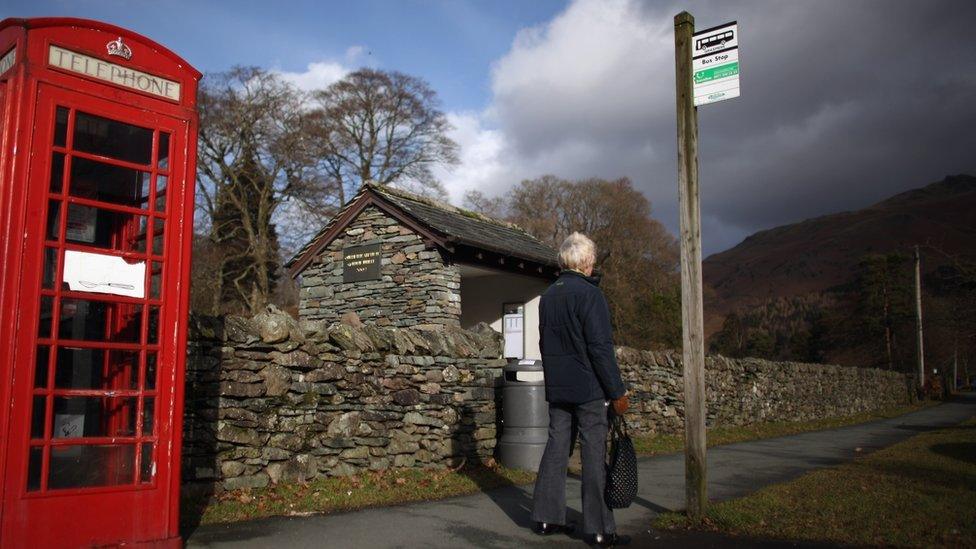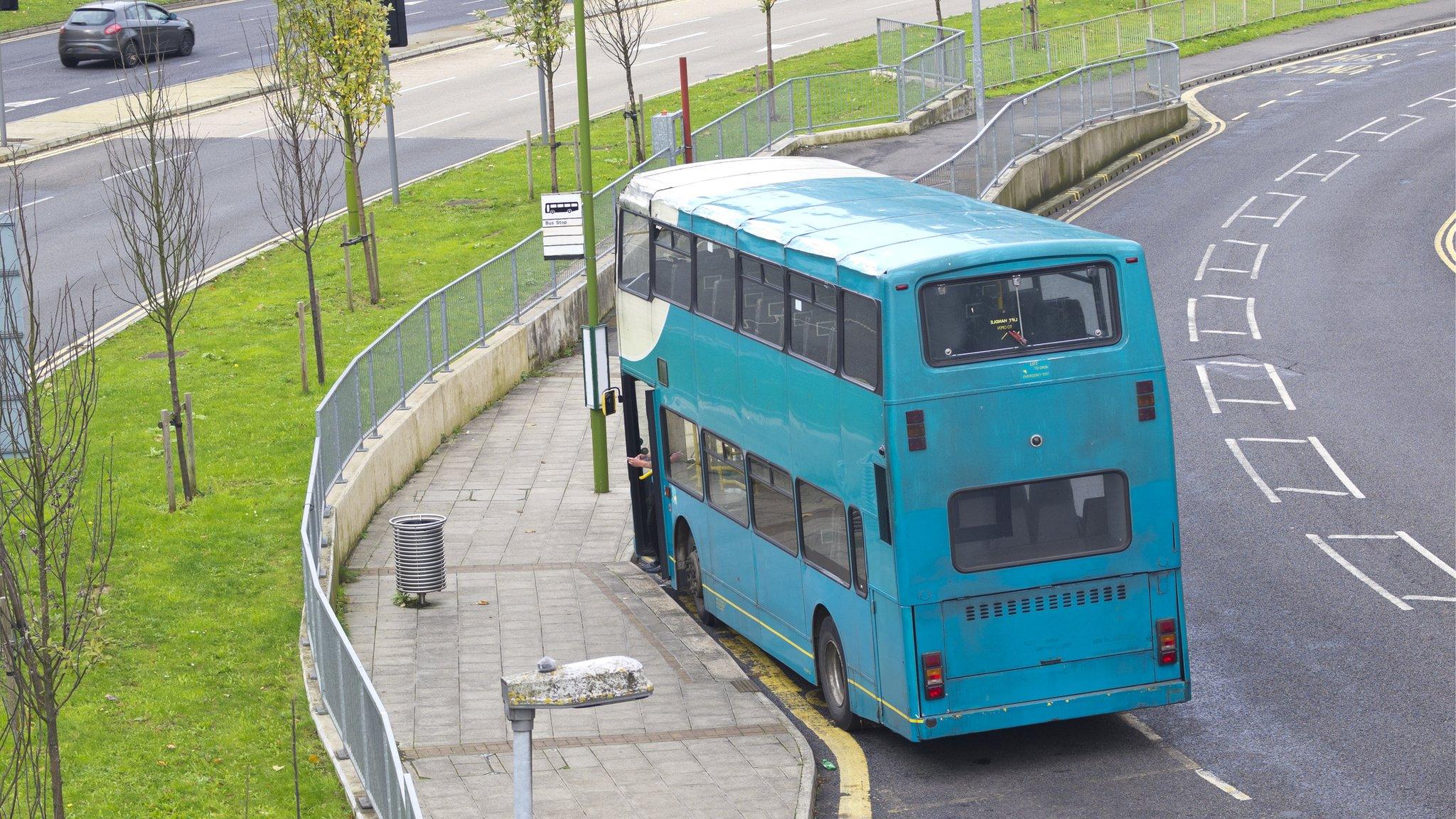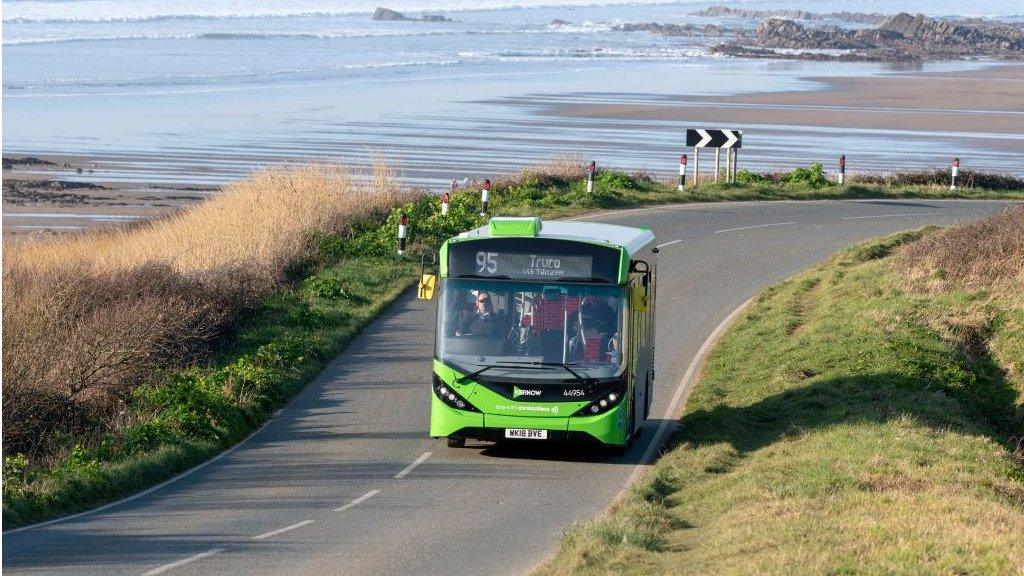Labour pledges to reverse cuts to 3,000 bus routes in England
- Published
- comments
Jeremy Corbyn: I want to see an end to high bus fares
Labour is pledging to spend £1.3bn a year to reverse cuts to 3,000 bus routes and fund the expansion of new services in England.
During a visit to Nottingham, Jeremy Corbyn said services have been "devastated" by austerity.
The Campaign for Better Transport said local authority bus budgets have been cut by 45% since 2010.
But ministers said they spent £250m a year directly on services, including some that otherwise wouldn't be viable.
Labour said its policy, launched a week before local council elections across England, would be funded by revenue from Vehicle Excise Duty.
In a speech, Mr Corbyn said bus services are a "lifeline" for many people and cuts to services in the past decade have had "disastrous consequences for our towns and city centres and for air pollution and the environment".
"Bus networks are essential for towns and cities and for tackling rural poverty and isolation, which is why Labour is committed to creating thriving bus networks under public ownership."
Labour says the policy complements its plan to put communities in control by bringing local services into public ownership, and introducing free bus fares for young people under the age of 25.
Outside London, buses are largely run by private companies, which make their money from passenger fares.

The government said buses were "vital for connecting people" so it subsidises costs by about £250m every year
Local councils pay subsidies to plug gaps in services, often in rural areas where running a route is more expensive or less lucrative for companies. Nearly half of all bus routes in England receive partial or complete subsidies from councils.
The Local Government Association has warned these services are at risk as local authorities will struggle to maintain current levels of support unless they are given more funding.
Department for Transport figures show the number of local bus passenger journeys in England fell by 85 million, or 1.9%, to 4.36 billion in the year ending March 2018.
Labour's plans were welcomed by trade unions but the Conservatives said the opposition had "already spent the pot of money they claim would fund this proposal".
Marcus Jones, the party's vice chair for local government, said motorists would end up being "clobbered" and funding for road repairs slashed to pay for the proposal.
"Along with their plans to put politicians in Westminster in charge of running local bus services, their pledge to slash funding for roads and their calls to increase fuel duty, this just proves they are not on the side of hardworking families who rely on their vehicles," he said.
VED is forecast to raise about £7.1bn in revenues in 2021-2022.
The government has said some of this money will be ring-fenced to pay for road building but Labour has said sustainable transport schemes will also be backed.
The Liberal Democrats said they agreed with Labour that additional bus funding is needed, but "much more needs to be done".
The party's transport spokeswoman Jenny Randerson added: "Targeting funding in the right areas is vital, particularly in rural areas where people can be cut off".
The Liberal Democrats say they would give young people aged 16-21 a two-third discount off bus fares.
Co-leader of the Green Party, Sian Berry, also said Labour was right to reverse the cuts but urged them to commit to scrapping the HS2 high-speed rail project.
"This would free up tens of billions of pounds to be invested in transforming bus and train services in hundreds of towns and cities across the UK," she said.
In a response, the Department for Transport said: "Buses are vital for connecting people, homes and businesses which is why we help subsidise costs by around £250m every year and support local authority spending.
"Local authorities spend a further £1bn on the free bus pass scheme, benefiting older and disabled people across the country.
"We have also recently published our plans to make bus travel more convenient for passengers by ensuring better access to real-time information on fares, routes and services."
- Published2 July 2018

- Published15 March 2021
